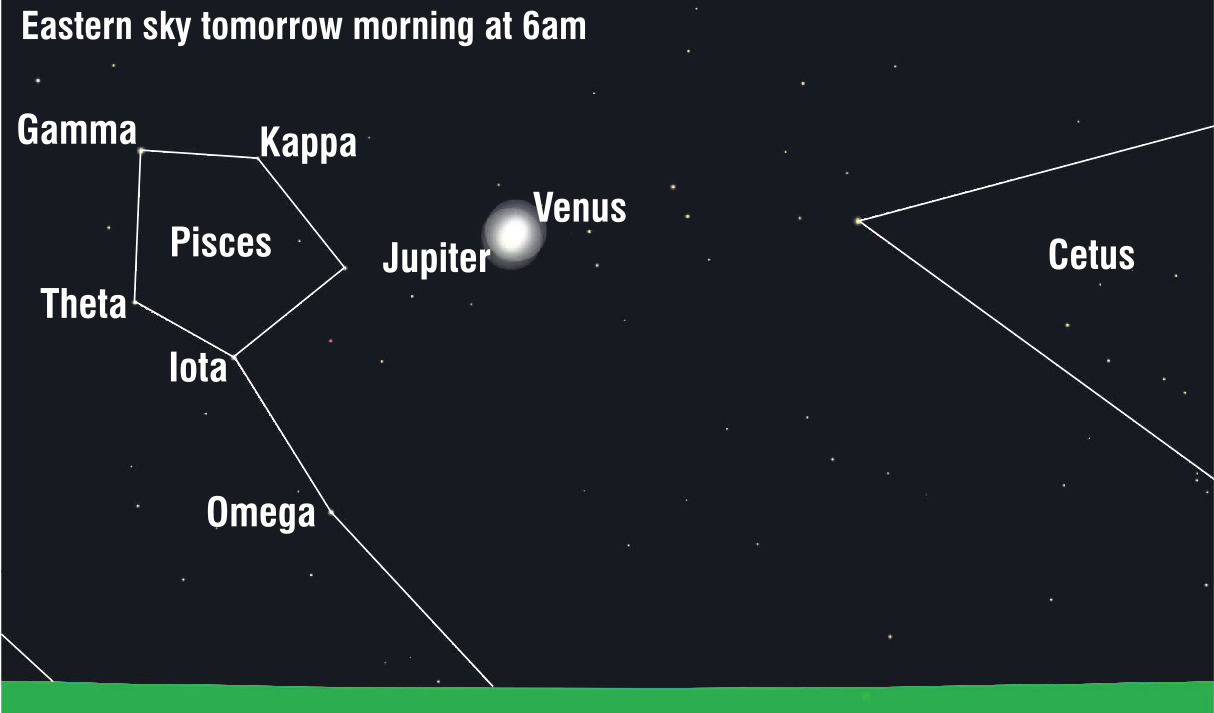
While planet watching is always enjoyable, I shall be making a special effort to get up early tomorrow. I am determined to witness what should be one of the celestial highlights of the year. Jupiter and Venus will be separated by less than the apparent diameter of the full moon. Astronomers call this a planetary conjunction. It provides an excellent opportunity to compare the planets’ brightness and colour. Venus is brighter; it is more than six times brighter than Jupiter. Most observers think that Jupiter is yellow-white while Venus seems to have more of a blue-white hue.
Although Venus and Jupiter seem to be close together, this is just a line-of-sight effect. Tomorrow morning Venus will be 149 million km away. In contrast, Jupiter is more than five times more distant than its planetary sibling. It is a tad under 850 million km from Earth.
Venus and Jupiter are moving through the constellation Pisces. They rise just before 4am and, as they ascend, they should present a marvellous sight to those with an unobstructed eastern horizon.
The best time to view the pairing against a dark background will be just before the start of twilight (around 6am). By then the two planets will be roughly twenty degrees above the horizon.
If you have binoculars or, better yet, a telescope you will be able to see both planets in the same field of view. Venus is 67% illuminated and resembles a gibbous moon. The circular disk of gas-giant Jupiter will be festooned by cloud belts. Keen-eyed observers should be able to see Jupiter’s great red spot and the dark shadow of its moon Ganymede crossing the planet's disk tomorrow morning.
As an added bonus, optical aid will allow you to see the four major moons of Jupiter as bright “stars” beside its disk.
- Ian Griffin












